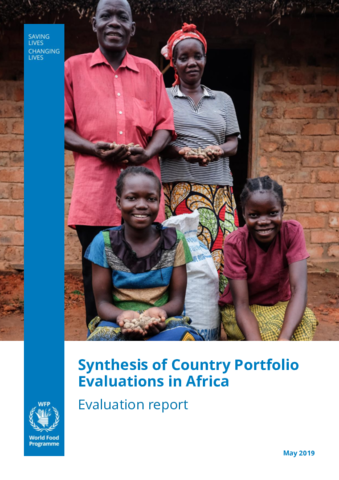
The first WFP country portfolio evaluation synthesis assessed eight country portfolio evaluations in Burundi, Cameroon, the Central African Republic, Ethiopia, Mali, Mauritania, Somalia and South Sudan, completed during 2016 - 2018.
The CPEs highlighted how WFP’s specialized capabilities and technical assets were applied to address the effects of war, political instability and climate change on food security and nutrition. WFP’s strengths in rapid adaptation and scale-up; extensive emergency response capacity; technical abilities in food security and nutrition analysis; and committed relationships with national partners prove valuable assets, not least in supporting famine prevention in Ethiopia and Somalia. However, strategic gaps and weaknesses were compounded by gaps in staff and management continuity fragile contexts/protracted crises. Contributions to peacebuilding under the triple nexus were still emergent, and further scope exists to apply a resilience lens in preventing and reducing food and nutrition insecurity.
Seven lessons have been drawn from the eight CPEs: (i) a strong analytical base supports strategic relevance; (ii) resilience presents an opportunity for integrated planning; (iii) capacity strengthening requires long-term planning and commitment; (iv) adherence to the Humanitarian Principles requires adapting to context; (v) protection and accountability to affected populations require sustained attention; vi) gender requires a transformative approach; and (vii) investment in innovation pays dividends.
To support WFP’s strategic shift, the synthesis made six recommendations: (i) improve availability and use of guidance to support CSP design; (ii) strengthen the financial and partnership base for development and peacebuilding; (iii) address staffing and management arrangements in fragile contexts/protracted crises; (iv) develop regional-level operational plans for development and peacebuilding actions, applying a gender-transformative lens; (v) systematise localised adherence to the Humanitarian Principles; and (vi) improve adherence to accountability to affected populations commitments.
